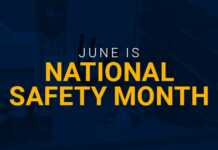ICW Group surveillance efforts revealed a lie when a California man claimed a work-related injury. Shortly after resigning, a furniture mover working for an ICW Group customer alleged to have injured his shoulder, back, and hand. According to our customer, the worker has been known to work for another moving company. To find out the truth, ICW Group launched a surveillance investigation. Based upon the video and available evidence, it quickly became clear that the worker was working for another employer, contradicting his testimony under oath.
ICW Group’s Special Investigations Unit compiled the various pieces of evidence to demonstrate the lie, as well as an explanation of the potential financial impact which could have occurred, had it not ultimately been discovered. Special thanks go out for the great tip from our customer partner, followed by the coordinated efforts of our attorney and investigators. Criminal charges were ultimately filed against this worker for felony insurance fraud and perjury.
This real case scenario is a great demonstration of an important concept: Tape + Testimony = Success.
Investigative surveillance is commonly timed to best align with the worker stating what they can and cannot physically do. While each case is unique, this concept is important to understand. While a picture may be worth 1,000 words, the “lie” can typically only be established with the words of the claimant. What are they telling their doctor, employer, claims examiner, attorneys in depositions, or investigators? How then does their “testimony” compare to the the video evidence captured by ICW Group’s Special Investigations Unit. If the video evidence appears to contradict the testimony evidence, it is possible that insurance fraud may be present and law enforcement may need to be notified. The more days of surveillance you secure, the more compelling this can be. This same evidence can then be considered by the claims examiner and defense attorney in the more accurate understanding of the true extent of the worker’s claim. Commonly, the worker’s physician will be shown the video evidence and asked to comment on whether the depictions on video are consistent with what the worker had told the doctor. Doctors may change their opinion on the worker’s injury based upon video evidence when it shows a clearly more capable individual than they had been led to believe.
Surveillance is not appropriate in all cases. In fact, laws govern when and to what extent surveillance may be conducted. However, when surveillance is considered, your claims examiner will strategize on the timing.
Keep an eye out for future stories of investigative surveillance success, including the role in which tips from our customers often provide.

















